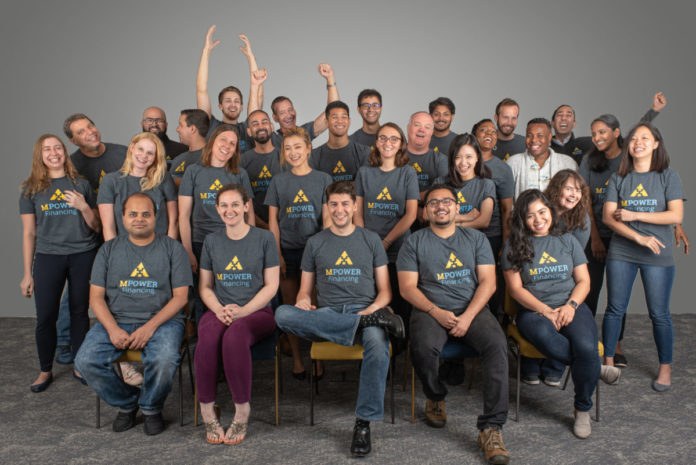
The year of 2021 has been kind to many technology categories in the DMV, but one that’s been in the headlines almost more than any other is the city’s booming edtech industry.
With raises, acquisitions and product launches, education technology has had practically unparalleled growth as schools continue with virtual learning techniques, and seek new ways of bringing tech into the IRL classroom. At the same time, institutions are seeking new models to run front offices, and make education more accessible.
But we get it, it’s hard to keep up. So just in time for the new school year, we’ve rounded up 13 of the top edtech companies in the metro area that you need to know.
Blackboard: The one that started it all
This list is alphabetical, but Blackboard is a natural starting point for talking about education companies in the DMV. Since its founding in 1997, DC edtech darling Blackboard has been a jumping-off point for education innovators in the region (in fact, Technical.ly CEO Chris Wink once said it was the DC consumer tech success of the ’90s).
The company’s learning management software has brought eyes to the DC scene, centered the role of learning in the city’s technology sector and Mayor Muriel Bowser once wanted it to stay in DC so badly that she offered the company a $1 million tenant improvement grant, so long as Blackboard gave back to the community.
With multiple acquisitions in its pocket (including Remote Learner UK, Sequoia Retail Systems and Moodlerooms), it’s currently made its home in Reston, Virginia, with about 350 team members working IRL and remotely. Oh, and just last week, it merged with Florida’s Anthology to create a huge(r) edtech firm.
You thought we were done with Blackboard? Think again. In 2020, the company’s cofounder and 15-year CEO Michael Chasen turned around and founded ClassEDU, now known as Class Technologies. The DC company’s software adds capabilities to Zoom such as attendance, one-on-one learning and proctoring exams for remote learning.
Despite being less than a year old, Class landed a spot in our 2021 RealLIST Startups roundup, nabbed a multi-million investment from Tom Brady and Salesforce and is eyeing unicorn status with a $105 million megaround investment from SoftBank.
Cybrary: The one that, yes, it should be on this list. Just let me explain
Hear me out on this one. While it’s not quite the company you’d find in a classroom and often falls on lists of the region’s cybersecurity companies, College Park, Maryland’s Cybrary has a huge presence in the DMV when it comes to educating future cybersecurity professionals (for free!).
After its founding in 2015, then-CEO Ralph Sita said it enrolled over 10,000 students in just one week. After moving into the Discovery District in May, Secureworks alum Kevin Hanes took over as CEO earlier this summer with a new focus on community engagement and honing in on the company’s training programs.
On top of its many free course offerings, Cybrary collabed with Safal Partners and the Cyber Future Foundation in May to offer 600 apprenticeships in the industry.
Edtech Evidence Exchange: The one that’s keeping tabs on all these other companies
An Arlington nonprofit formerly known as the Jefferson Education Accelerator and in cahoots with the University of Virginia, Edtech Evidence Exchange works to find information about the edtech industry and spending.
Its latest endeavor, the Edtech Genome Project, tracks edtech spending by schools and its overall impact.
In July, it found that pre-pandemic edtech spending was between $26 billion and $41 billion annually, while post-COVID spending is more likely around $100 billion (and that’s a conservative number). Still, it estimates that about half of all education technology is used ineffectively, materially underused or unused at all.
EverFi: The one that’s using edtech for social good
Although it launched all the way back in 2008, after moving its HQ from Georgetown to the West End neighborhood in 2018, social impact SaaS company EverFi has landed major successes in recent years in the DMV.
In 2019, it closed an international acquisition deal of London-based EdComs, an education insight and marketing company, and scored partnerships with Baltimore via NBA player Rudy Gay and former Philadelphia football star Brian Dawkins.
This summer, it scored nine figures when Florida’s Vector Solutions paid $100 million to acquire just its higher education business (the same amount that the company pledged in 2020 to expand resources that address systemic social justice and economic disparities).
Full Measure Education: The one that helps you out at the admin office
We’re still not done with the Blackboard connections. In 2013, Greg Davies, one of the founding team members at Blackboard, founded Full Measure Education, a company that develops communication software for the administration side of college to help lower dropout rates.
A few years later, as a startup, it raised $5.5 million and $6 million investment rounds back-to-back led by Wayne, Pennsylvania’s Safeguard Scientifics.
In 2021, the NoMa company raised another $10 million from Fulcrum Equity Partners that will be put towards hiring, adding an entire floor to its HQ and growing its product offerings.
Davies told Technical.ly in June that the company now serves 450 schools, the majority of which have been added in the past year and a half.
GiveCampus: The one that’s taking care of fundraising
After just a few days in its new office at the Navy Yard, GiveCampus had to go virtual like the rest of the world in March 2020. But it has continued on and pushed forward with its growth (here’s how the company’s execs did it).
Impact on the area, though, goes back much further for the fundraising platform for schools. In 2019, it launched GC Connect, which lets schools accept donations in person through credit cards and mobile wallets at events like alumni gatherings and fundraisers, and, as of 2018, it’s worked with over 500 schools nationwide (and counting).
Knowledge to Practice: The one that’s bringing edtech to frontline workers
Following a $3.7 million raise in January of 2020, Bethesda, Maryland-based SaaS platform for adult learning Knowledge to Practice (K2P) turned around and launched a subscription-based learning module for medical professionals in July of that year.
After partnering with health organizations in South Carolina to deploy the platform to 25,000 healthcare practitioners and professionals, it turned CurrentMD COVID into a mobile app loaded with up-to-date COVID-19 research and discoveries in micromodules.
Legends of Learning, HQ’d near Union Station in DC, offers educational games for middle schoolers that teachers can assign to their students.
After raising $9 million in 2017, the company made enough of a splash to land the #3 spot on our 2018 RealLIST Startups. We haven’t checked about their WFH setups, but pre-pandemic you could often find capes hanging on staffers’ chairs around the office (for any IRL superhero needs, obviously).
MPOWER Financing: The one that puts its $$ where its mouth is
Founder in 2014, MPOWER Financing, which offers loans and financing to Deferred Action for Childhood Arrivals (DACA) and international students, is a huge player in DC’s market. And it’s got the funding to prove it.
In 2018, it landed $110 million in financing for its students, then got another $100 million in loan financing from Goldman Sachs again in 2019. Its growth continued on in 2020 when it nabbed $9 million in fresh funding, plus another $25 million in January of 2021 (aaaand another $5 million in March).
If that wasn’t enough, it also claimed one of DC’s megarounds in July with yet another $100 million in an equity round and $52.5 million in unrestricted corporate debt. Then, founder Manu Smadja told us in July that ESG practices should be at the center of any business. Phew, you got all that?
Vemo Education: The one that’s taking on student debt
This has been a good year for Arlington income-based payment platform Vemo. In June, it acquired Boston-based edtech company Edmit for an undisclosed amount, and the pair already have already begun work on its new service for students: Vemo and Edmit will pay for six months of loans for eligible students who don’t find a job within a year of graduation or make less than $20,000 a year.
It also found some clout in August when it was at the top of DC companies named on the 2021 Inc 5000 list as #586.
Words LIIVE: The one that lets you compare Kendrick Lamar and Beowulf
Words LIIVE, founded in 2015 by Sage Salvo, is one of the more creative offerings on the DC edtech scene. Its software lets students compare the lyrics of popular songs alongside classroom texts to help explore literary concepts and improve literacy.
Earlier this year, Salvo and LIIVE were also named semifinalists in The GSV Cup, a pitch competition for edtech startups. To date, it’s raised over $750,000 and Salvo is currently in the midst of launching a brand-new product offering for the company that helps teachers with lesson plans.
2U: The one that’s done it all
Since its founding in 2008, Lanham, Maryland’s 2U has pretty much done it all.
It has gone public, racked up partnerships with Linkedin and Northwestern University, started multiple scholarship funds and launched a podcast.
Following a $750 million acquisition of Trilogy Education in 2018, the company promptly raised $300 million in a public stock offering (it first went public in 2014, raising $100 million). It’s also had some power shifts over the years. After CFO Catherine Graham retired from 2U following a seven-year stint in 2019, Paul S. Lalljie joined the team. That same year, Ebony Lee left an SVP role at Comcast to take a managing director role at the company in what we dubbed as one of 2019’s Super Power Moves.
More recently, 2U acquired digital learning platform edX from Harvard and MIT for $800 million in June.
Made it to the end of this list? Congratulations, you’re now an official DMV edtech expert. Use this knowledge wisely.
Who’d we miss? Let us know at dc@technical.ly.
-30-








